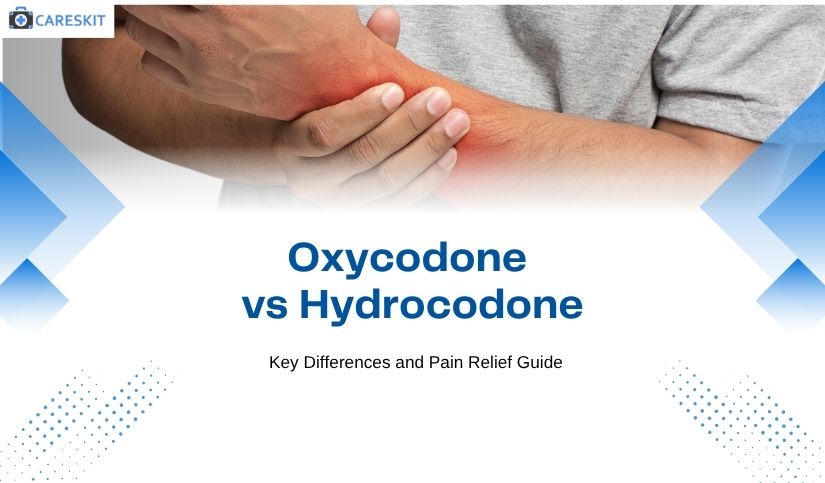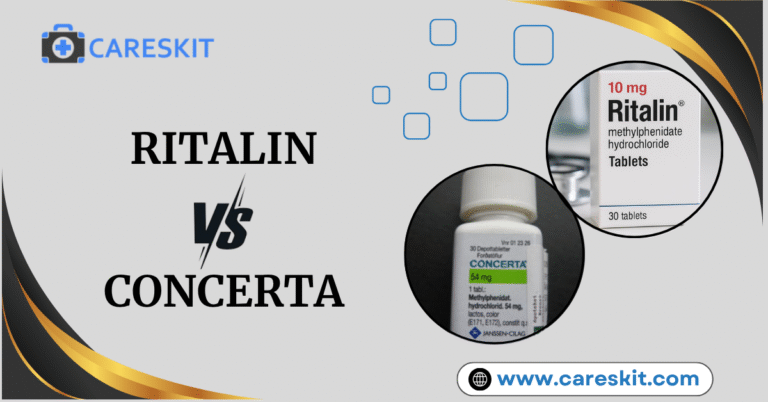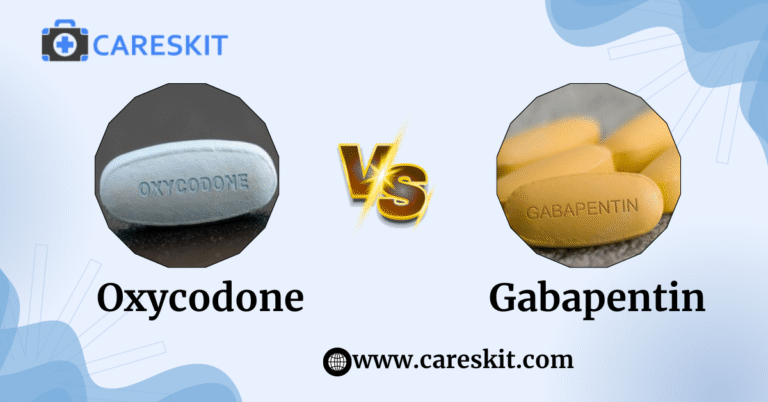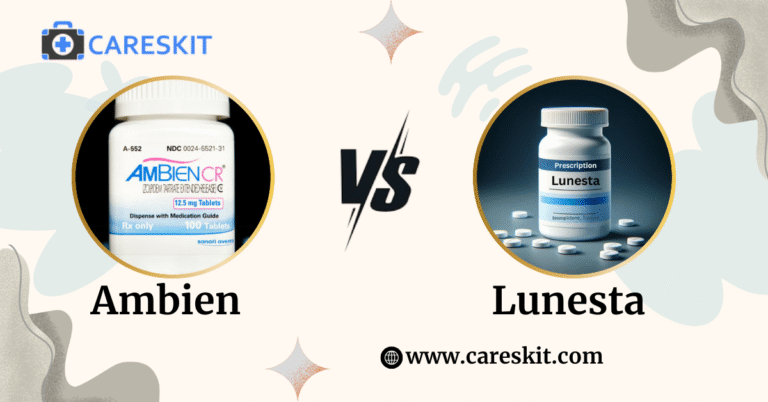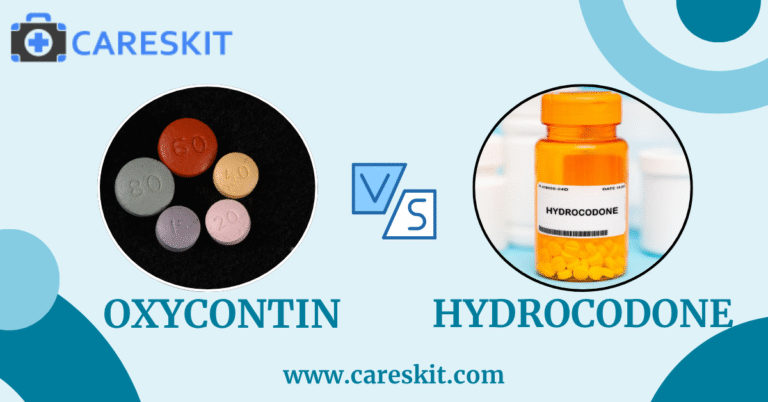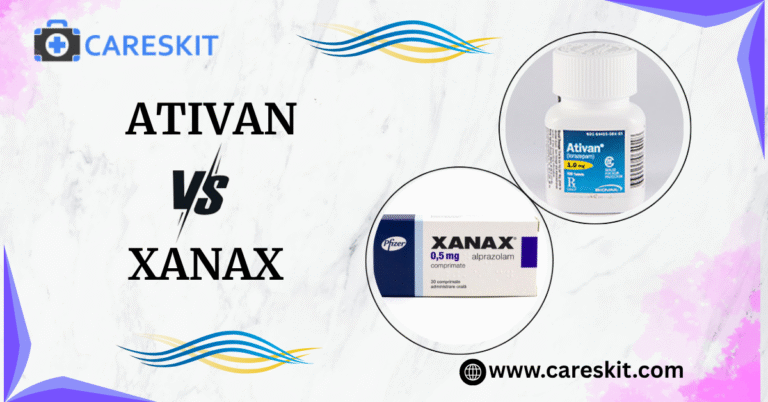Oxycodone vs Hydrocodone: Key Differences and Pain Relief Guide
In the case of treating moderate to severe pain, Oxycodone and Hydrocodone are two widely prescribed opioid drugs. While comparable Oxycodone vs Hydrocodone in several aspects, they have primary differences influencing the way they’re administered, how well they work, and their risks. One thing you should never forget is the proper choice for you: Oxycodone or Hydrocodone? Which one is appropriate depends on the patient’s pain level, medical history, and risk of addiction. So you should always follow the doctor’s guidelines for safe and effective treatment.
In this article, we will discuss Oxycodone vs Hydrocodone potency, dosages, strength, side effects, and risks to enable patients and caretakers to make decisions in consultation with health care professionals.
What are Oxycodone and Hydrocodone?
Both Oxycodone and Hydrocodone are very strong, formidable painkillers. Both drugs come only with a prescription and a doctor’s monitoring. They function by attaching to opioid receptors in the nervous system and brain, which decreases the feeling of pain and yields relief. Both medications are narcotic analgesics and tend to be prescribed following surgery, trauma, or for chronic types of pain treatments.
Oxycodone, which comes under the brand names Roxicodone or OxyContin (extended-release), among others, is a semi-synthetic opioid that is prescribed for moderate to severe pain. It belongs to a drug class named Opioid Analgesic.
Hydrocodone is a combination of acetaminophen or ibuprofen to control moderate to severe pain and as a cough suppressant. It may be addictive, and you should take your hydrocodone product exactly as prescribed by the doctor.
Hydrocodone vs Oxycodone For Pain Relief
Hydrocodone vs Oxy are potent opioid analgesics that are effective in preventing pain transmitted between the body and the brain by blocking pain signals. These medications attach to opioid receptors in the spinal cord and brain, which blocks the transmission of pain messages to the brain and provides an analgesic effect.
These drugs are widely used for moderate to severe acute pain due to surgery or injury, and in some instances, chronic pain that does not respond to other therapies.
Oxycodone is used when the patient needs a stronger opioid, while hydrocodone is used primarily with patients who have a lower opioid tolerance and need acetaminophen with their opioid medication to achieve the necessary pain relief.
Medicinal Comparison Of Hydrocodone vs Oxycodone
Hydrocodone and Oxycodone are two prescribed opioids used to treat pain, but they differ in their potential for abuse, formulations, and medical uses.
Forms of Oxycodone:
Oxycodone is available in various formulations that treat different types and durations of pain.
Immediate-Release (IR) Tablets/Capsules:
Immediate-release oxycodone provides rapid relief of pain and is usually prescribed for acute or breakthrough pain; it starts working within 10 to 30 minutes and lasts approximately 4 to 6 hours.
- Brand names: Roxicodone, Oxaydo
- Use: Short-term pain relief
- Onset: ~10-30 minutes
- Timing: 4-6 hours
Extended-release (ER) tablets:
Extended-release oxycodone (25 mg or greater), such as OxyContin, is made to release the drug over 12 hours for chronic, long-term pain management that requires stable, consistent, around-the-clock pain relief.
- Brand names: OxyContin, Xtampza ER
- Use: Around-the-clock, long-term pain control
- Timing: Up to 12 hours or even longer
Forms of Hydrocodone:
Hydrocodone comes in many formulations for the treatment of different types of pain. Some common formulations of Hydrocodone are immediate-release (IR) hydrocodone with acetaminophen and extended-release (ER) hydrocodone.
Immediate-Release (Only available as a combination):
Immediate-release (IR) hydrocodone with acetaminophen, which is available in the formulation and commonly used brand names Vicodin, Norco, and Lortab. These combination products are generally prescribed for acute pain and are taken every 4-to-6 hours as needed for the pain
- Brand names: Vicodin, Lortab, Norco.
- Indication: Short-term pain relief.
- Onset: 30 minutes.
- Duration: 4-6 hours.
Extended-Release (ER) tablets:
The ER formulations do not contain acetaminophen and are released over 12- to 24 hours, which decreases the frequency of doses. ER products are used for individuals with chronic pain and are written for patients who have developed some opioid tolerance.
- Brand names: Hysingla ER, Zohydro ER.
- Indication: Chronic pain requiring a 24/7 opioid dose.
- Duration: Up to 24 hours (depending on formulation).
Can You Take Oxycodone and Hydrocodone Together?
No, you should not take Oxycodone and Hydrocodone together, because both drugs are strong opioid analgesics that are similarly used to treat severe to moderate pain.
Taking this medicine together may increase the risk of serious side effects, like respiratory depression, sedation, hypotension, and even overdose.
The following table indicates side effects following Hydrocodone and Oxycodone administration in doses that are recommended. The incidence can be greatly boosted if they are overdosed or administered concurrently.
Side effects (>10%): Constipation (8-11%), Nausea (7-10%)
Common side effects (1-10%): Headache (4%), Vomiting (3-5%), Somnolence (1-5%), UTI (1-5%), Dry mouth (3%), Back pain (1-4%), Dizziness (2-3%), Peripheral edema (1-3%) and Muscle spasms (1-3%), Insomnia (3%), Influenza (3%)
Oxycodone versus Hydrocodone: Which has more potency?
Oxycodone is usually more potent than hydrocodone in its pain-relieving effect. When taken orally, oxycodone is roughly 1.5 times stronger than hydrocodone, which means it can offer more intense pain relief at lower doses
Hydrocodone, although still a potent opioid, is usually used for moderate to severe pain and is most frequently found in combination with acetaminophen in drugs such as Norco or Vicodin.
Because of its potency, oxycodone also has a greater potential for side effects, addiction, and overdose if not handled prudently, so medical supervision is imperative when prescribing either drug.
Is it okay to switch from Oxycodone to Hydrocodone?
Yes, one can be switched from oxycodone to hydrocodone, but it should be done with a doctor’s guidance. Both are opioids, but they vary in potency, metabolism, and patient response. Oxycodone is more potent than hydrocodone (around 1.5 times as potent), so your doctor will have to reduce the dosage carefully to ensure adequate pain relief but prevent overdose or withdrawal.
Key factors for a doctor when switching:
- Current oxycodone dosing
- Reason for the exchange (any side effects, lack of availability, cost, effectiveness)
- Opioid course
- Health course including liver function
- Combination products (ex. includes with acetaminophen)
Warnings Before Using Oxycodone or Hydrocodone
Before taking oxycodone or hydrocodone, it is essential to understand the serious risks and precautions associated with these potent opioid medications. Both medications can cause respiratory depression and even death, particularly if taken in high doses and combined with alcohol, benzodiazepines, or sleep medications.
It is also important not to drive or use heavy machinery until you are aware of how the drug impacts you, since both are capable of making you drowsy and impairing your judgment. These drugs are never to be shared with anyone and must be stored safely to avoid misuse. Always take your healthcare provider’s instructions to the letter and report all other medications you are on to prevent possibly harmful drug interactions.
Side Effects
Oxycodone and hydrocodone have the same side effects because they are both in the same class of opioid drugs.
Common Side Effects Are:
- Drowsiness or sedation
- Dizziness or lightheadedness
- Constipation
- Nausea and vomiting
- Dry mouth
- Sweating
- Itching or rash
Serious Side Effects Are:
- Respiratory depression (slowing or shallow breathing)
- Confusion or mood changes
- Low blood pressure (hypotension)
- Dependency, tolerance, and addiction
- Withdrawal symptoms if abruptly discontinued after chronic usage
Frequently Asked Questions (FAQs)
Can these drugs lead to addiction?
Yes, both hydrocodone and oxycodone have a high risk for dependence, tolerance, and addiction, and therefore must be taken precisely as directed.
Is Oxycodone stronger than Hydrocodone?
Yes, Oxycodone is stronger than Hydrocodone due to its potency for managing severe pain. Approximately, Oxycodone is 1.5 milligrams stronger than Hydrocodone, which means it provides more effective pain relief at a lower dose.

